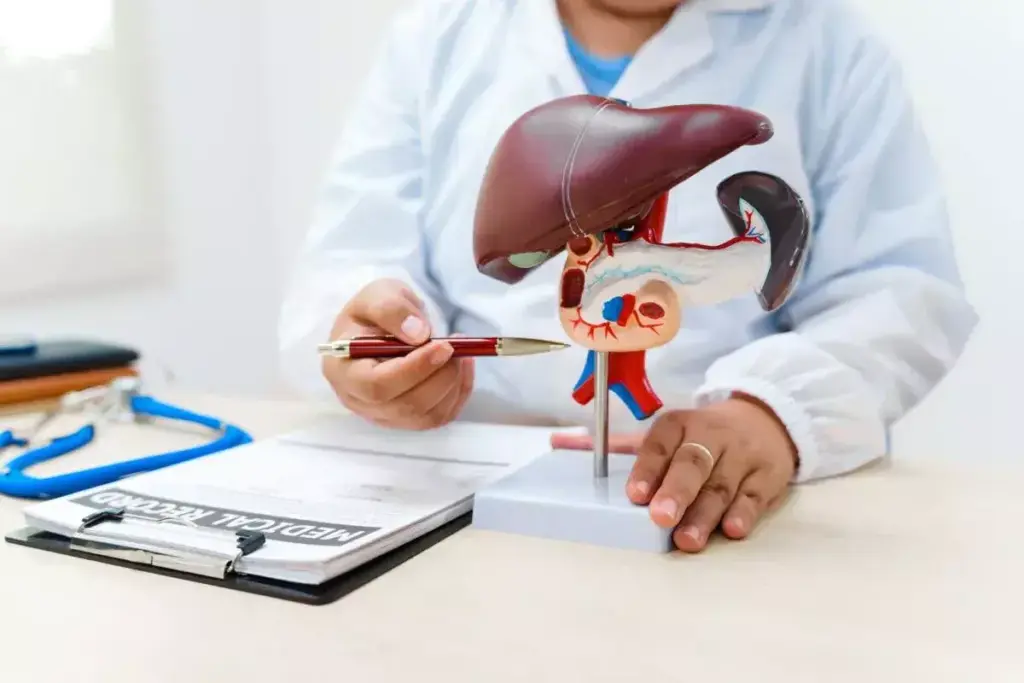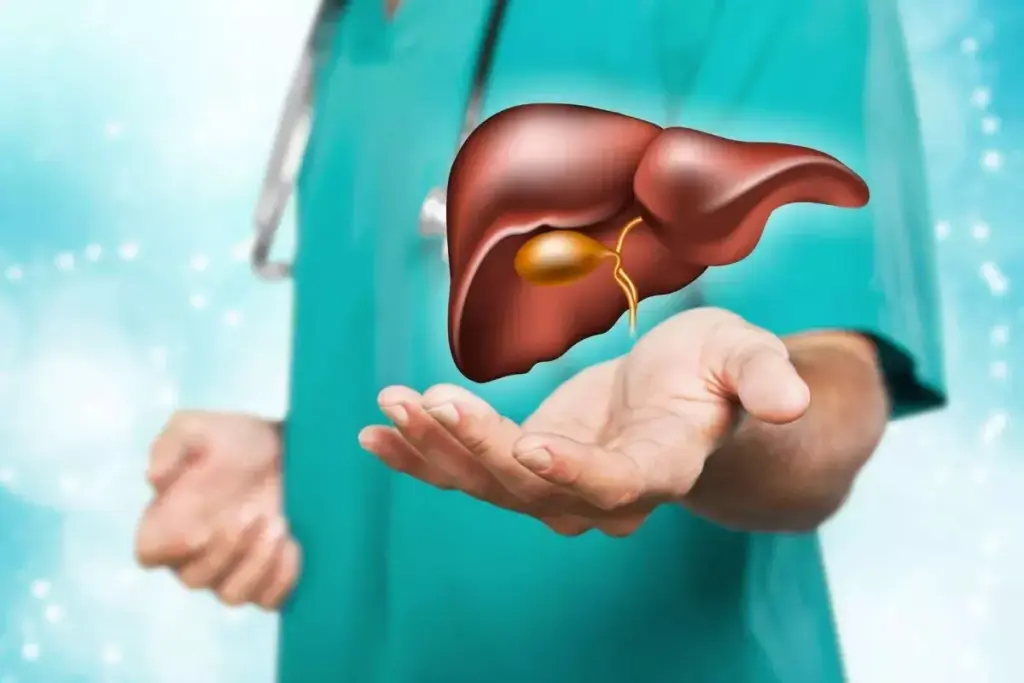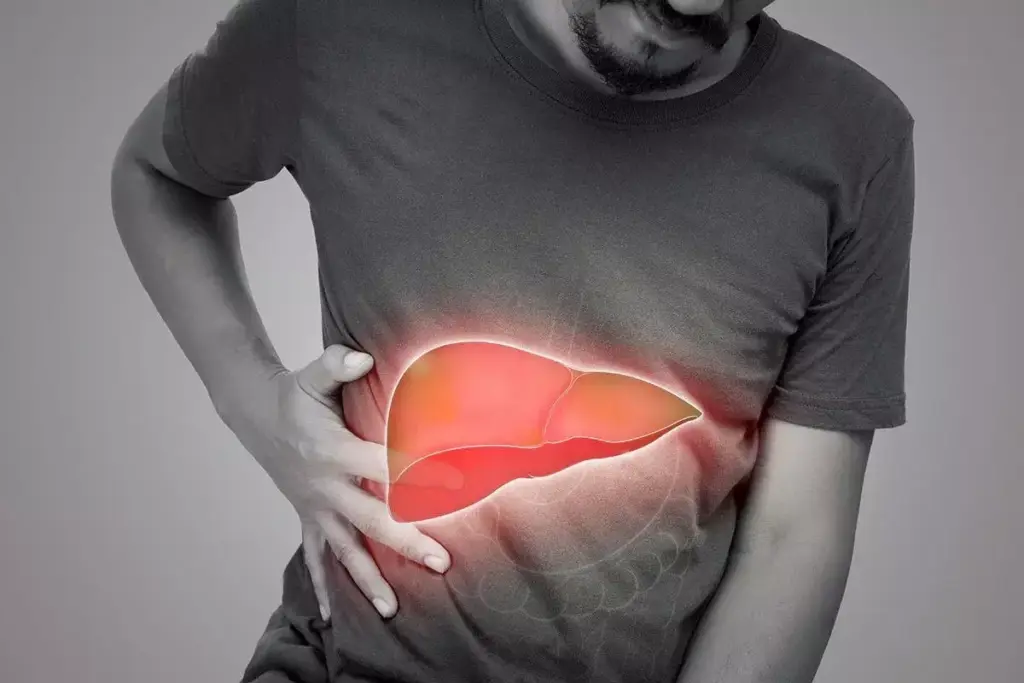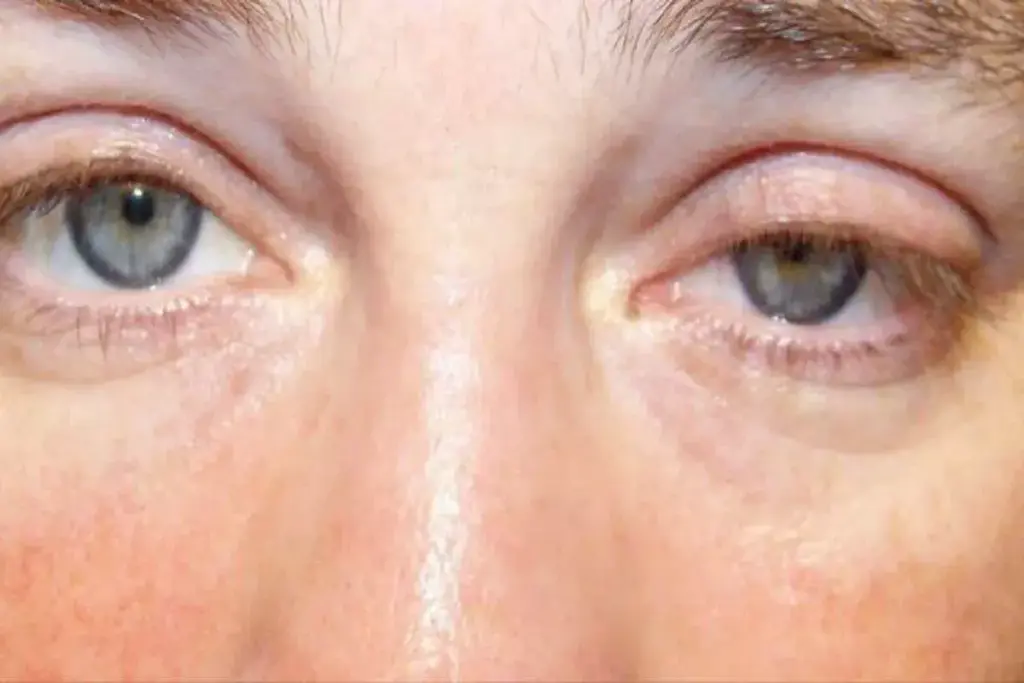Cancer patients’ needs are changing fast as more people survive the disease. Understanding these Cancer Patient Supportive Care Needs is vital for advancing patient care, ensuring equity, and shaping the future of cancer care worldwide.

Recent statistics show over 2 million new cancer cases and 18.6 million survivors. This highlights the need for both immediate and ongoing care. Cancer patients need more than just medical treatment. They also need emotional support and comprehensive care that looks at their overall well-being.
Key Takeaways
- Cancer patients require both advanced medical treatments and emotional support.
- The growing number of cancer survivors means we need long-term care and support services.
- Understanding the evolving needs of cancer patients is key to improving care.
- Early detection and updated treatments are essential for better outcomes.
- Coordinated care is vital for ensuring cancer patients get the support they need.
The Growing Complexity of Cancer Patient Needs
The world of cancer care is changing fast. More people are getting cancer, and more are surviving it. This means we need to care for them not just when they’re sick, but also for a long time after.
Current Statistics: 2 Million New Cases and 18.6 Million Survivors
Recent numbers show a big increase in cancer cases and survivors. Every year, about 2 million new cases are diagnosed. And now, there are 18.6 million cancer survivors. This shows we need to care for patients in many ways, not just when they’re first diagnosed.

These numbers mean a lot. With more people beating cancer, we need to help them more. We must support them from the start of their journey to the end.
Balancing Acute Treatment and Long-Term Care
It’s important to balance the care we give to cancer patients. We need to treat the cancer itself and also take care of their ongoing needs. This includes both the immediate treatment and the care they need later on.
- Acute Care: This includes treatments such as surgery, chemotherapy, and radiation therapy.
- Long-Term Care: This encompasses a range of services, including symptom management, rehabilitation, psychological support, and survivorship care.
Knowing what to say to someone with cancer is also key. Comforting words can help a lot. By focusing on both immediate and ongoing care, we can give better care to our patients.
Access to Early Detection and Diagnostic Services
Early detection is key in fighting cancer. Getting to diagnostic services is vital. Regular screening programs are key to finding cancer early, when it’s easier to treat.
Importance of Regular Screening Programs
Screening programs find cancer before symptoms show. This can greatly improve treatment results. For example, mammograms and colonoscopies have lowered death rates from breast and colon cancer. It’s important to follow screening guidelines for early detection.
The benefits of regular screening include:
- Early detection of cancer, often before symptoms develop
- Improved treatment outcomes due to timely intervention
- Reduced risk of cancer-related mortality
Reducing Barriers to Timely Diagnosis
But barriers can slow down diagnosis. We need to tackle these to ensure everyone gets timely care. Strategies include:
- Improving access to healthcare, mainly in underserved areas
- Teaching patients about screening and early detection
- Making the diagnostic process faster to start treatment sooner
For those going through chemotherapy, gifts can offer comfort and care. Some ideas are:
- Cozy blankets or soft clothing for comfort during treatment
- Books, puzzles, or games to help pass the time
- Personal care items, such as scented lotions or gentle skincare products

Advanced and Updated Treatment Options
The world of cancer care is changing fast. New therapies and personalized medicine are leading the way. Patients now have access to treatments that were not available before.
Innovative Therapies and Clinical Trials
New treatments like immunotherapy and targeted therapy offer hope to cancer patients. Immunotherapy uses the body’s immune system to fight cancer. Targeted therapy targets specific molecules that help cancer grow.
Clinical trials are key in finding new treatments. They let patients try novel therapies and help researchers test their safety and effectiveness.
- Immunotherapy: Boosts the body’s immune response to fight cancer.
- Targeted therapy: Targets specific cancer cells, reducing harm to healthy cells.
- Precision medicine: Tailors treatment to the individual based on genetic profiles.
Personalized Medicine Approaches
Personalized medicine is changing cancer care. It tailors treatment to each person’s genetic profile. This makes treatments more effective and improves outcomes.
Healthcare providers use genetic data to find the right treatments. They look for specific mutations in the cancer to choose the best therapies.
“The future of cancer treatment lies in personalized medicine, where therapies are tailored to the unique characteristics of each patient’s cancer.”
Financial Assistance Programs for Treatment Costs
Cancer treatment can be very expensive. But there are programs to help with costs. These programs cover expenses like medication, hospital stays, and more.
- Patient assistance programs: Offered by pharmaceutical companies to help with medication costs.
- Non-profit organizations: Provide financial assistance for various cancer-related expenses.
- Government programs, Such as Medicaid and Medicare, can help cover treatment costs.
Exploring these options can help patients get the care they need without financial stress.
Coordinated Multidisciplinary Care Teams
A team of healthcare professionals working together is key to top-notch cancer care. They tackle both medical and supportive needs. This teamwork makes sure patients get the best care possible, leading to better treatment results.

Benefits of Integrated Specialist Collaboration
At the core of coordinated care is teamwork among specialists. Experts from oncology, surgery, radiology, and more come together. They craft a treatment plan that fits each patient’s unique situation. This way, all parts of a patient’s care are covered, from start to finish.
The benefits of this team effort include:
- More accurate diagnoses thanks to many specialists
- Treatment plans that fit the patient’s health and wishes
- Smarter care coordination, cutting down on mistakes
- Handling side effects and supportive care better
Patient Navigation Services
Patient navigation services are vital in coordinated care. Navigators guide patients through their diagnosis, treatment choices, and the healthcare system. They help with scheduling, finding financial help, and emotional support.
Having a navigator makes patients feel more supported and confident. As Understand Cancer Together points out, a cancer care team offers full support. Patient navigation is a big part of that support.
Communication Between Healthcare Providers
Good communication among healthcare providers is essential for smooth care. When everyone knows the patient’s status and treatment plans, they can make better decisions. This leads to better care for the patient.
Ways to boost communication include:
- Regular team meetings to talk about patient plans
- Using electronic health records to share info
- Clear ways for patients to reach their care team
By focusing on teamwork, patient support, and clear communication, we can greatly enhance the cancer treatment experience. This benefits patients and their families a lot.
What to Say to Someone with Cancer: Effective Communication
When supporting someone with cancer, talking well is key. The right words can offer comfort and strength. They can also help them feel connected during tough times.
Supportive Phrases That Provide Genuine Comfort
Using supportive phrases can really help. Saying “I’m here for you,” “You’re not alone,” or “I’m thinking of you” can offer real comfort. These words show you care and are there for them.
Sharing happy memories or experiences is also great. For example, saying “I’ll always remember when…” can bring joy to their day.
What to Avoid Saying to Someone Diagnosed with Cancer
Some things we say might not be helpful. Avoid saying “You’re strong, you’ll get through this,” as it might downplay their feelings. Also, saying “It’s going to be okay” might not fully understand their situation.
Don’t give advice or compare their situation to others. Just listen and be there for them.
What to Write in a Card for Someone with Cancer
Writing a card is a kind gesture. Start with something simple like “Thinking of you and sending love.” You could also share a favourite quote or a message of hope.
Include a personal story or a message that shows you care. This makes your card even more special.
Good communication is more than just words. It’s about being there and truly listening. By being thoughtful and caring, we can offer real support to those facing cancer.
Emotional and Psychological Support Resources
Emotional and psychological support are key parts of cancer care. A cancer diagnosis can deeply affect a patient’s mental health. It can change their life quality and how well they do in treatment.
Professional Mental Health Interventions
Professional mental health help is very important for cancer patients. This help can include counselling, cognitive-behavioural therapy, and medication. It helps manage anxiety, depression, and other mental health issues.
We think it’s key to mix mental health services with cancer care. This way, patients get the emotional and psychological support they need.
Having access to mental health experts who know about oncology is very helpful. They can teach patients how to cope, manage stress, and feel better overall.
Support Groups and Peer Connections
Support groups and peer connections are special for cancer patients. They can share their stories, get support, and meet others facing similar challenges. These groups can be in-person or online, making it easy for everyone to join.
Being in support groups can make patients feel less alone and more in control. We suggest patients check out these resources as part of their care plan.
How to Support Someone with Cancer Emotionally
Supporting a loved one with cancer can be tough, but there are ways to help. Active listening is key, letting patients share their feelings without fear of judgment. Being there, helping out, and encouraging them to stay in touch with loved ones is also important.
Also, helping patients find professional mental health help and support groups is very helpful. By giving emotional support, we can make cancer patients feel supported and strong during their treatment.
Practical Support Services During Treatment
Practical support services are key for cancer patients. They help them deal with treatment’s challenges.
Transportation and Lodging Assistance
Travelling to treatment centers can be tough for many patients. Transportation assistance programs offer vehicles or pay for fuel. Some groups also help with lodging assistance for overnight stays near treatment centers.
- Local charities that provide free or low-cost transportation
- Patient navigation services that help coordinate travel arrangements
- Ronald McDonald House Charities, which offers lodging for families
Meal Preparation and Household Help
Cancer treatment can make patients tired and unable to do daily tasks. Meal preparation services offer healthy meals. Household help services help with cleaning and chores.
- Meal delivery programs that cater to patients’ dietary needs
- Volunteer programs that offer household cleaning and organization
- Online platforms that connect patients with local helpers
Thoughtful Gifts for Someone Going Through Chemo
Gifts can show support for cancer patients going through chemotherapy. Look for items that help them relax, like cozy blankets or chemotherapy-friendly skincare.
- Cozy blankets and comfortable clothing
- Books, puzzles, or other activities to pass the time
- Personal care items, such as scented lotions or lip balms
Pro-active Symptom Management Strategies
Managing symptoms is key in cancer care. It helps patients feel better and live better lives. We use many ways to help cancer patients.
Pain Control and Management Approaches
Pain is a big issue in cancer care. We use different methods to control pain, like:
- Medicines that fit each patient’s needs
- Non-medical ways, like physical therapy and relaxation
- Special procedures for really bad pain
By mixing these methods, we can help patients feel more comfortable.
Addressing Treatment Side Effects
Cancer treatment can cause many side effects. We work hard to lessen these effects by:
- Watching for and tracking side effects early
- Creating plans to tackle specific side effects
- Offering support to help patients feel better
We aim to make treatment side effects less of a burden on our patients’ lives.
Complementary Therapies for Symptom Relief
Along with regular treatments, other therapies can help too. We suggest:
- Therapies like acupuncture and massage
- Practices like meditation and yoga
- Help with food choices to keep patients healthy
For families supporting loved ones with cancer, a short positive message can mean a lot. Messages like “You’re not alone,” “We’re here for you,” or “Keep going, you’re doing well” can lift spirits.
Personalized Survivorship Care Planning
Personalized survivorship care planning is key for cancer survivors. After treatment ends, survivors start a new care phase. This phase focuses on their long-term health and well-being.
Long-term Follow-up Protocols
Long-term follow-up is vital for checking survivors’ health. We suggest protocols with regular check-ups, screenings, and tests. These should match the survivor’s cancer type and treatment history.
- Regular follow-up appointments with oncologists and primary care physicians
- Surveillance for recurrence or metastasis
- Screening for new cancers or health issues related to previous treatments
Addressing Late Effects of Cancer Treatment
Cancer treatments can cause late effects that affect survivors’ quality of life. We stress the need to identify and manage these effects. These may include:
- Cardiac issues related to certain chemotherapy drugs
- Cognitive changes or neuropathy
- Emotional or psychological challenges
Managing these late effects needs a team effort. It involves many healthcare specialists.
Quality of Life Enhancement Strategies
Improving quality of life is a main goal in survivorship care. We use strategies to boost physical, emotional, and social well-being. These include:
- Rehabilitation programs to restore physical function
- Support groups for emotional and social support
- Nutritional counselling and lifestyle advice
By adding these strategies to care plans, we can greatly improve survivors’ quality of life.
In conclusion, personalized survivorship care planning is essential for cancer survivors. It ensures they get the right support. By focusing on long-term follow-up, managing late effects, and improving quality of life, we can significantly help survivors.
Addressing Disparities in Cancer Care Access
Improving cancer care access is key to better treatment outcomes. We know many factors cause these disparities. They affect patient care and result in a lot.
Socioeconomic Factors Affecting Treatment Outcomes
Socioeconomic factors are big in cancer care disparities. Low-income patients struggle to get timely, quality care because of financial issues. We must think about:
- Limited financial resources
- Lack of health insurance
- Geographic barriers to healthcare facilities
These issues can cause late diagnosis and treatment. This can lower survival rates. We need to create policies and programs to tackle these barriers and improve equity in cancer care.
Cultural and Linguistic Barriers to Quality Care
Cultural and linguistic barriers also affect cancer care access and quality. Language barriers can make communication between patients and doctors hard. This can lead to misunderstandings and wrong diagnoses. We should:
- Provide language interpretation services
- Culturally tailor healthcare services to meet diverse patient needs
- Train healthcare professionals in cultural competency
By tackling these barriers, we can improve communication and health outcomes for different groups.
Initiatives to Improve Equity in Cancer Services
There are many ways to improve equity in cancer services. We can:
- Implement community-based cancer screening programs
- Enhance patient navigation services to facilitate access to care
- Promote research on cancer disparities to inform targeted interventions
Using technology, like telemedicine, can also help. It can reach more people in underserved areas. We’re committed to exploring these options to ensure fair cancer care for everyone.
Understanding and tackling the complex factors behind cancer care disparities is essential. Our goal is to reduce barriers and ensure all patients get top-notch cancer care. We will focus on socioeconomic, cultural, and linguistic barriers to achieve this.
Conclusion: Meeting the Holistic Needs of Cancer Patients
It’s key to meet the holistic needs of cancer patients to boost their well-being and treatment success. We’ve learned that cancer patients have many needs, like psychological, physical, spiritual, and socio-economic ones. Almost three-quarters of patients have high needs, with psychological needs being the biggest.
To meet these needs, we need to offer comprehensive support services. These should include emotional, practical, and medical care.
By taking a holistic care approach, we can help cancer patients get the support they need. This support helps them deal with their diagnosis and treatment better. It’s vital for improving patient outcomes and quality of life. We must keep focusing on cancer patient’ needs and aim for high-quality, patient-centred care that meets their unique needs.
FAQ
What do cancer patients need the most?
Cancer patients need a lot of care and support. They need advanced medical treatments and emotional support. They also need help with everyday tasks to manage their condition well.
What to say to someone who has cancer?
When talking to someone with cancer, be real and show empathy. Saying “I’m here for you” or “You’re not alone” can offer comfort. Try not to use clichés and listen to what they have to say.
What are some comforting words for someone with cancer?
Comforting words can be different for everyone. Saying “You’re strong and capable,” “I’m here to support you,” or “You’re doing great” can be uplifting. It’s also good to acknowledge their feelings and show you understand what they’re going through.
What are some thoughtful gifts for someone going through chemotherapy?
Good gifts for someone going through chemotherapy include cozy blankets and comfy clothes. Books, magazines, and practical items like a water bottle or care package are also great. These can make their day a little better.
How to support someone with cancer emotionally?
To emotionally support someone with cancer, be there for them and listen well. Validate their feelings and let them know it’s okay to express them. You can also suggest professional help or support groups.
What to write in a card for someone with cancer?
When writing a card for someone with cancer, be sincere and heartfelt. You can say you support them, share a good memory, or just let them know you’re thinking of them. Try to avoid clichés and focus on their feelings and experiences.
What are some short positive messages for cancer patient families?
Short positive messages for cancer patient families can be uplifting. Say things like “You’re not alone,” “We’re here to support you,” or “Stay strong and positive.” These messages can help lift their spirits during tough times.
How to address disparities in cancer care access?
To address disparities in cancer care access, we need to understand the issues. This includes looking at socioeconomic factors, cultural and linguistic barriers, and more. We must work to make cancer services fairer for everyone.
What are some practical support services during cancer treatment?
Practical support services during cancer treatment are very helpful. This includes help with transportation, lodging, meal prep, and household chores. These services can make life easier for patients and their families, helping them focus on getting better.
References
- Borowska, M., & Sobczak, A. (2024). Hospital Care for Cancer Patients”Education and Respect from the Patient Perspective. Nursing Research and Practice. https://pmc.ncbi.nlm.nih.gov/articles/PMC10887647/










